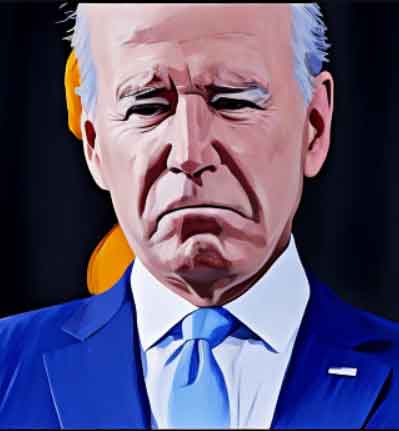
In the primaries, the former vice president looked good in comparison with Sen. Bernie Sanders, and he ran in the general on not being Donald Trump.
Now, everything has changed. Biden is allied with Sanders, who helped write the first version of his Build Back Better plan, and Trump, back in Mar-a-Lago, no longer looms as large as Biden's foil.
The best case for Biden's presidency was that he could be a kind of consensus caretaker — restoring a sense of normality and maintaining a low profile while riding in the slipstream of improving economic conditions and a diminishing pandemic.
Instead, he's been carried along by the left-wing tide of his party, repeatedly engaged in unconstitutional executive overreach and brought his own brand of incompetence — exemplified by the botched Afghan pullout — to it all.
His foremost mistake was overestimating an attenuated electoral mandate for pedestrian governance as a permission slip for passing nearly the entirety of the progressive agenda in the space of less than a year.
Not only has there been sticker shock over the price tag of the Biden agenda, it has little connection to things people truly care about. The infrastructure bill polls well, but no one goes about their daily lives worried about the alleged crisis of crumbling bridges and tunnels.
Meanwhile, the Build Back Better bill started as a $3.5 trillion grab bag of everything that progressives want but couldn't get in the infrastructure bill. Passing as much spending as you possibly can before you lose Congress a year from now, which is essentially the rationale behind Build Back Better, is not a compelling reason for a historic spate of federal spending.
That legislation has been pared to largely a child-care and climate-change bill. That's an unnatural pairing that came about not because those are the top two things the public wants from Washington but because they happen to be what Democrats think they can pass.
Only now is the White House trying to argue that the infrastructure bill and Build Back Better will address real public concerns, the supply-chain disruptions and the inflation eroding the value of workers' wages. This is clearly a tendentious, after-the-fact argument.
The White House can hope that the supply-chain bottlenecks ease and inflation declines, but Biden's disastrous first year speaks to a more intractable problem with the occupant of the Oval Office himself.
(COMMENT, BELOW)


 Contact The Editor
Contact The Editor
 Articles By This Author
Articles By This Author